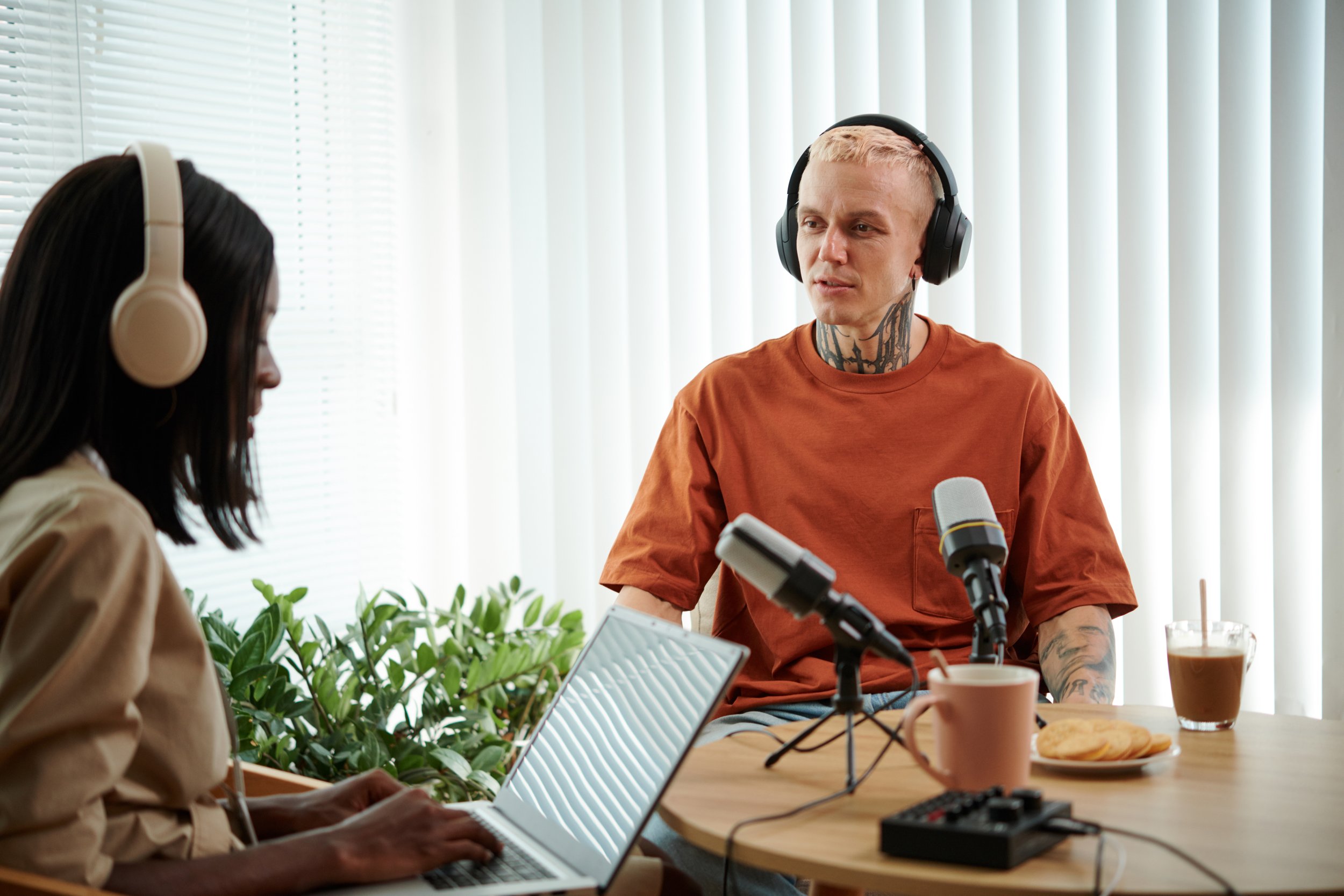Podcast Agency vs. DIY: A Complete Cost-Benefit Analysis
You’ve made the decision. You're launching a podcast.
It’s a smart move. A podcast is one of the most powerful tools available for building authority, connecting with your audience on a deep level, and creating a scalable content engine for your business.
But now you’re at a critical crossroads: Do you do it all yourself (DIY) or do you hire a professional podcast agency or manager?
This isn’t just a creative question; it's a crucial business decision. As a professional who has managed the launch and growth of numerous shows, I've seen both paths up close.
Let's break down the true cost-benefit analysis, moving beyond just the dollar signs to find the real value.
💸 The "Do-It-Yourself" Path: What's the Real Cost?
On the surface, DIY seems like the cheapest option. You buy a mic, download some free editing software, and you're good to go, right?
Not quite. The DIY path has significant hidden costs that are rarely factored in until it's too late.
1. The Financial Cost
Even "cheap" isn't free. Here's a basic shopping list:
Good USB Mic: $100 - $200 (e.g., Blue Yeti, Rode NT-USB+)
Editing Software (DAW): Free (Audacity, GarageBand) or Paid (Descript, Hindenburg, Adobe Audition) at $15-$30/month.
Podcast Host: $12 - $25/month (e.g., Buzzsprout, Transistor, Captivate)
Transcription: $0.25/minute (or more software costs)
Total Initial Cost: ~$150 + ~$40/month
This isn't prohibitive, but it's the time cost where the real sticker shock happens.
2. The Time Cost
This is the single most important factor. For a single one-hour podcast episode, a realistic time breakdown for a non-expert looks like this:
Pre-Production: Finding/booking guests, research, outlining: 1-2 hours
Production: Setup, recording, re-takes: 1.5 hours
Post-Production: Editing (um's, ah's, dead air), mixing, mastering, adding intro/outro, bouncing files: 2-4 hours
Distribution: Writing show notes, creating audiograms, uploading to the host, scheduling social media, creating blog post: 1-2 hours
Total Time Per Episode: 5.5 - 9.5 hours
Now, do the math. If you're a consultant, business owner, or executive, what is your billable hour worth? $100? $200? $500?
If your time is worth $150/hour, that single DIY episode just cost you $825 - $1,425 in opportunity cost. You spent that time being a novice audio engineer instead of closing clients, building strategy, or leading your team.
3. The Quality & Consistency Cost
The final hidden cost is the risk of "podfading."
The Learning Curve: Audio engineering is a skill. Your first 10 episodes will likely sound... rough. Poor audio is the #1 reason listeners abandon a show.
The Burnout: The post-production grind is real. It's the least fun part of podcasting, and it's the main reason most podcasts die before they reach episode 10. Consistency is everything in podcasting, and DIY is the biggest threat to it.
The DIY path is cheap on paper but incredibly expensive in time, quality, and consistency.
🚀 The Podcast Agency Path: What's the Real Benefit?
Hiring a podcast agency, manager, or production service is a financial investment. You'll pay a monthly retainer or a per-episode fee. But what are you buying?
You're not just buying editing. You're buying back your time and guaranteeing a professional-grade asset.
1. The Time Benefit (The ROI)
Let's revisit that 5.5 - 9.5 hours per episode. When you hire a service, your workflow shrinks to this:
Pre-Production: Research & outlining (You still do this, but a good manager can help): 1 hour
Production: Hit "record" and be the expert: 1 hour
Post-Production: Zero.
Distribution: Zero.
Total Time Per Episode: 2 hours
You just bought back 4-7 hours of your highest-value time per episode. If you publish weekly, that’s 16-28 hours a month you can dedicate to revenue-generating activities. The service almost always pays for itself in reclaimed opportunity cost.
2. The Quality & Strategy Benefit
An agency isn't just a pair of hands; it's an expert brain.
Instant Professionalism: From day one, your show sounds like it’s been on the air for years. This builds instant credibility with listeners and high-profile guests.
A Strategic Partner: A good manager does more than just edit. They help you with content strategy, guest outreach, monetization, and growth. They see your podcast as a core marketing asset and help you treat it as such.
Guaranteed Consistency: The show will go out, every single time, without you ever thinking about compression, LUFS, or ID3 tagging.
The agency path is a financial cost that unlocks massive value in time, professionalism, and strategic growth.
The Final Verdict: When Does Each Make Sense?
The choice becomes very clear when you define your "why."
Choose the DIY Path if:
Your podcast is a pure hobby and has no business objective.
You genuinely want to learn the craft of audio engineering and editing.
You have significantly more time on your hands than you have budget.
Choose the Agency Path if:
You are a business, entrepreneur, or busy professional.
Your podcast is a marketing asset designed to build authority, generate leads, or create content.
You understand that your time is your most valuable resource and is better spent on your business, not in the technical weeds of it.
📈 Stop Editing, Start Hosting
If you've done the math, the conclusion is simple: trading your $150/hour executive time for a $30/hour editing task is a bad business decision.
Your value is in your voice, your expertise, and your relationships. Your podcast should be a platform for those things, not a drain on them.
If you’re ready to get all the benefits of a high-authority podcast with none of the post-production headaches, let's talk. My Podcast Management services are designed to take the entire technical burden off your shoulders so you can focus on one thing: creating great content.
Visit my Podcast Management service page to see what's included and book a free consultation.

